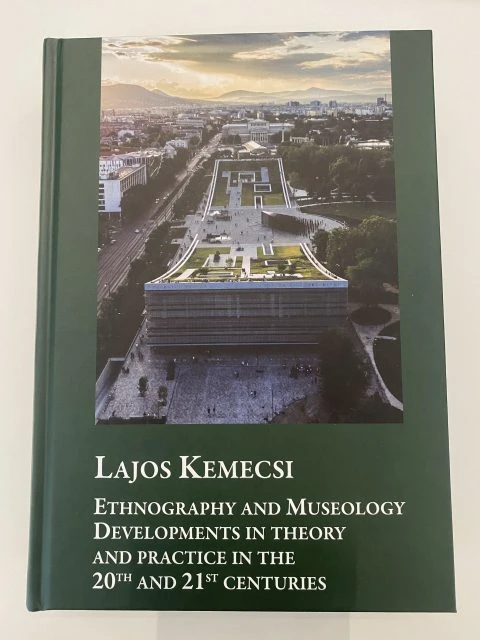Lajos Kemecsi: Ethnography and Museology
8.990 HUF
308 készleten
The research findings summarised in the present volume are explicitly related to the methodological and museological processes that are discernibly shaping the nature ofethnographical museology — including, ofcourse, open-air ethnographical museology
— as an integrál part of the transformation currently taking piacé in the museum sphere as a whole. This transformation, which entails a fundamental changein the global role of museums and their methodological renewal, can be observed both internationally and in Hungary.
The author has worked fór the best part of the last three decades in the museum field and has acquired a vvealth of experience with respect to the role played bymuseums in Hungary, and museums of ethnography in particular, as well as developmentsin museological theory and practice.
The individual chapters of the present book analyse the important points of contention in contemporary ethnographic museology. They deal with the pást, present and future of the Hungarian Open Air Museum in Szentendre and the Museum of Ethnography in Budapest. The thoroughgoing explorations, case studies and theory-oriented analyses to be found in the individual thematic sections address the distinctive and topical questions of 21st-century ethnographic museology. They analyse the relationship between cultural anthropology and ethnographic museology, the role of the modern social museum, and the opportunities for the museumbased research of matériái culture. In a certain sense, the volume can be regarded as a report primarily on the problems affecting museums and collections at the beginningof the 21st century. I trust that the information to be found in this work will be of use to museum professionals, ethnographers, anthropologists, social scientistsand university students, bút alsó to members of the wider public who are interested
in the transformation of museums.
Edited by Lajos Kemecsi
Csak bejelentkezett és a terméket már megvásárolt felhasználók írhatnak véleményt.



Értékelések
Még nincsenek értékelések.